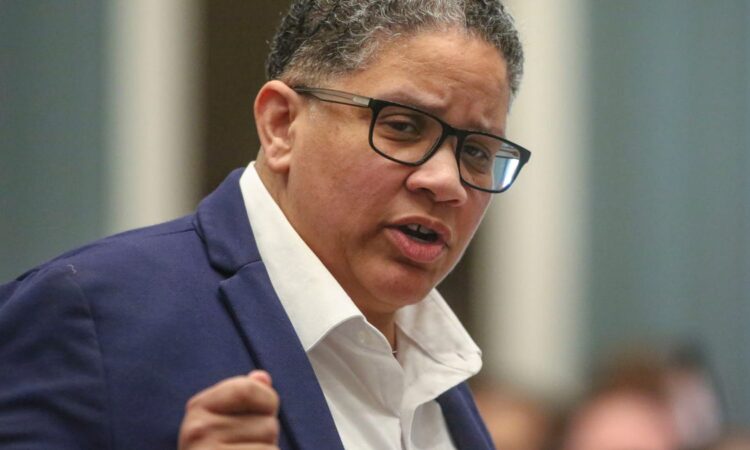

Reasons to plan your end-of-life care
Experts suggest planning your end-of-life care early in order to give yourself peace of mind and reduce stress on your family. 5/19/25
- A Delaware bill aims to simplify the inheritance process for homeowners with a Transfer on Death deed.
- These deeds allow real estate property to transfer to named beneficiaries, bypassing probate.
- Supporters say transfer on death deeds offer a low-cost alternative to probate, while opponents worry about unintended consequences and misuse.
When Delaware homeowners die without a will or trust, their property can linger in legal limbo, shutting out heirs and leaving homes vulnerable to neglect or loss.
A bill now moving through the General Assembly aims to change that by giving homeowners a simple, low-cost way to pass property to loved ones without going through probate.
The proposal, House Substitute 1 for House Bill 147, would allow Delaware homeowners to use a Transfer on Death deed, a legal document that lets a homeowner name a beneficiary who would automatically inherit the home upon the owner’s death.
The measure has gained traction among advocates for aging populations and low-income families. Supporters say the change would help prevent “tangled titles,” which occur when heirs informally inherit homes but lack legal ownership.
The tool has also drawn concerns from probate officials and estate planning professionals who warn it could create unintended consequences and legal complications.
Delaware bill offers streamlined alternative to probate
At a legislative committee hearing in May, House Majority Leader Rep. Kerri Evelyn Harris, the bill’s primary sponsor, detailed how the Transfer on Death deed would work. The homeowner’s death would cause the deed to take effect, transferring the property directly to the designated individual without the need for probate.
The act would allow homeowners to retain full control over their property while alive, including the ability to sell, refinance or change the named beneficiary.
In response to issues raised in earlier discussions, lawmakers amended the bill to include additional safeguards. The revised version now requires that these deeds be signed in the presence of two witnesses, at least one of whom cannot be a named beneficiary. It also mandates that the beneficiaries’ printed names and mailing addresses be included in the deed.
The bill further clarifies that a Transfer on Death deed would take legal precedence over any conflicting provisions in a will, regardless of when the will was created. It preserves creditors’ rights to file claims against the property and imposes a 60-day waiting period before the new owner can obtain full insurance coverage.
Any challenges over the deed’s validity or revocation would be resolved in the Delaware Court of Chancery.
Opposition over access and potential conflicts
Delaware law already permits the non-probate transfer of certain assets such as bank accounts, investment accounts and vehicles. This bill would extend that option to real estate. Despite its intent to simplify inheritance, the bill has raised concerns among some officials who oversee probate cases.
During the hearing, Gina Cook, chief deputy for the New Castle County Register of Wills, testified on behalf of Register Ciro Poppiti. She warned that automatically transferring property upon death could prevent estate executors from accessing the deceased’s personal belongings inside the home, making it harder to properly settle the estate.
In response, Kent County Recorder of Deeds Eugenia Thornton pushed back, noting that flaws already exist in the probate system. Citing an American Bar Association study, she pointed out that “up to 3% of wills prepared by lawyers are contested,” suggesting that no estate planning method is without challenges.
Transfer on Death deed is no substitute for a will
Others voiced concerns that the Transfer on Death deed could be mistaken as a one-size-fits-all solution.
Jaclyn Quinn, deputy director of the Delaware Community Reinvestment Action Council, raised concerns that a Transer on Death deed might lead people to forgo legal advice, complicate estate administration, or spark disputes. Her nonprofit often assists low-income families facing probate and resolves tangled title issues stemming from inadequate estate planning.
Quinn, a lawyer, stressed that while these deeds may be helpful, they should not be promoted as a replacement for estate planning or a will.
“If someone owns property, it’s really important for them to have a will and name the correct beneficiaries,” Quinn said.
Without proper education and outreach, Quinn added, families might misuse Transfer on Death deeds or misunderstand their limitations, leading to unintended consequences.
The Delaware proposal is modeled on legislation developed by the Uniform Law Commission and has already been adopted in 19 states and the District of Columbia. During the committee hearing, Jane Sternecky, legislative counsel for the commission, explained that this specific deed is intended for individuals with modest estates, particularly those whose primary asset is their home.
Next steps and legislative outlook
The measure has drawn support from groups like AARP and the United Way of Delaware, which view the Transfer on Death deed as an important resource for those without the means for traditional estate planning. The bill’s supporters argue that bypassing the formal probate process can save families significant time, money and emotional strain.
Without a clear path for property transfer, unresolved estates often lead to legal entanglements – particularly for lower-income and multigenerational households – resulting in family disputes, financial hardship and neglected properties.
“It’s a big problem in Wilmington. It’s a big problem in Philadelphia,” said Sheila Grant, associate state director of advocacy for AARP Delaware.
The bill’s adoption may depend on lawmakers’ ability to balance accessibility with legal safeguards. Recent amendments clarify that property transferred via a transfer-on-death deed must be included in the probate inventory if an estate is opened. They also confirm that executors can access and secure personal property on the transferred real estate, and that a valid transfer-on-death deed takes effect immediately upon the owner’s death – even if certain documents haven’t been filed.
Having cleared the House, the bill now sits in committee in the Senate.
You can contact staff reporter Anitra Johnson at ajohnson@delawareonline.com.




